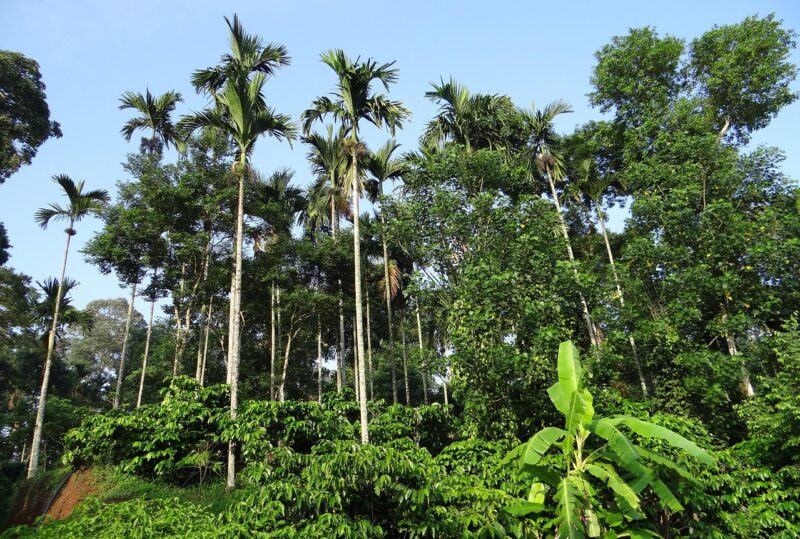Coorg Sustainable Tourism: Coorg, also known as Kodagu, is a beautiful district located in the southwestern part of the Indian state of Karnataka. Coorg is known for its breathtaking natural beauty, including verdant hills, dense forests, coffee plantations, and waterfalls. Tourism is a major industry in Coorg, with many visitors coming to explore its natural and cultural heritage. However, with increasing tourism, there is also a growing concern about the impact of tourism on the region’s delicate ecosystem. To address these concerns, Coorg has implemented sustainable tourism practices that focus on preserving its natural and cultural heritage while promoting responsible travel practices. In this article, we will explore Coorg’s sustainable tourism practices in detail.
- Eco-tourism
Eco-tourism is an essential component of sustainable tourism in Coorg. It involves promoting responsible travel practices that minimize the negative impact of tourism on the environment while providing visitors with an opportunity to appreciate the region’s natural beauty. Coorg offers a range of eco-tourism activities, including nature walks, birdwatching, and camping in eco-friendly accommodations. These activities are designed to promote environmental conservation while providing visitors with an authentic and immersive travel experience.
- Waste Management
Waste management is another critical aspect of sustainable tourism in Coorg. The region’s delicate ecosystem is sensitive to pollution and waste, and proper waste management is necessary to minimize the negative impact of tourism on the environment. Coorg has implemented several waste management initiatives, including promoting responsible tourism practices, waste segregation, and composting units. These initiatives ensure that the waste generated by tourism is managed responsibly, preserving the region’s natural beauty and wildlife.
- Community-based tourism
Community-based tourism is a sustainable tourism practice that involves the local community in tourism activities, promoting sustainable use of natural and cultural resources and supporting the local economy. Coorg has implemented several community-based tourism initiatives, including homestays, cultural tours, and handicraft workshops. These initiatives provide economic benefits to the local community, including job opportunities and income generation, while promoting the region’s natural and cultural heritage.
- Cultural preservation
Cultural preservation is an essential aspect of sustainable tourism in Coorg. It involves promoting the preservation of the region’s cultural heritage while providing visitors with an opportunity to learn about the local community’s way of life. Coorg has implemented several cultural preservation initiatives, including establishing cultural centers, museums, and festivals. These initiatives showcase the region’s cultural heritage and provide visitors with an authentic and immersive travel experience while supporting the local economy.
- Renewable energy
Renewable energy is an essential aspect of sustainable tourism in Coorg. It involves using renewable sources of energy, such as solar power and wind turbines, to minimize the region’s carbon footprint and promote sustainable tourism practices. Coorg has implemented several renewable energy initiatives, including the use of solar power in eco-friendly accommodations and the installation of wind turbines in the region’s hilly terrain. These initiatives minimize the impact of tourism on the environment while promoting responsible travel practices.
In conclusion, Coorg’s sustainable tourism practices are aimed at preserving the region’s natural and cultural heritage while promoting responsible travel practices. Eco-tourism, waste management, community-based tourism, cultural preservation, and renewable energy initiatives are essential components of sustainable tourism in Coorg. By implementing these initiatives, Coorg is not only preserving its delicate ecosystem but also providing visitors with an authentic and immersive travel experience.
Similar Articles
- Andaman and Nicobar Islands Sustainable Tourism
- Sikkim Sustainable Tourism Practices
- Kabini: Preserving Natural Beauty and Supporting Local Communities
- Chilika Lake: Preserving Biodiversity and Empowering Communities
Frequently Asked Questions About Coorg Sustainable Tourism Practices
What is sustainable tourism in Coorg?
Sustainable tourism in Coorg is an approach to tourism that focuses on preserving the region’s natural and cultural heritage while promoting responsible travel practices. It involves implementing initiatives such as eco-tourism, waste management, community-based tourism, cultural preservation, and renewable energy to minimize the negative impact of tourism on the environment and support the local economy.
What is eco-tourism in Coorg?
Eco-tourism in Coorg involves promoting responsible travel practices that minimize the negative impact of tourism on the environment while providing visitors with an opportunity to appreciate the region’s natural beauty. Activities such as nature walks, birdwatching, and camping in eco-friendly accommodations are designed to promote environmental conservation while providing visitors with an authentic and immersive travel experience.
How does Coorg manage waste generated by tourism?
Coorg manages waste generated by tourism through several waste management initiatives, including promoting responsible tourism practices, waste segregation, and composting units. These initiatives ensure that the waste generated by tourism is managed responsibly, preserving the region’s natural beauty and wildlife.
What is community-based tourism in Coorg?
Community-based tourism in Coorg involves the local community in tourism activities, promoting sustainable use of natural and cultural resources and supporting the local economy. Initiatives such as homestays, cultural tours, and handicraft workshops provide economic benefits to the local community, including job opportunities and income generation, while promoting the region’s natural and cultural heritage.
How does Coorg preserve its cultural heritage?
Coorg preserves its cultural heritage through several initiatives, including establishing cultural centers, museums, and festivals. These initiatives showcase the region’s cultural heritage and provide visitors with an authentic and immersive travel experience while supporting the local economy.
What is renewable energy in Coorg?
Renewable energy in Coorg involves using renewable sources of energy, such as solar power and wind turbines, to minimize the region’s carbon footprint and promote sustainable tourism practices. Initiatives such as the use of solar power in eco-friendly accommodations and the installation of wind turbines in the region’s hilly terrain minimize the impact of tourism on the environment while promoting responsible travel practices.










